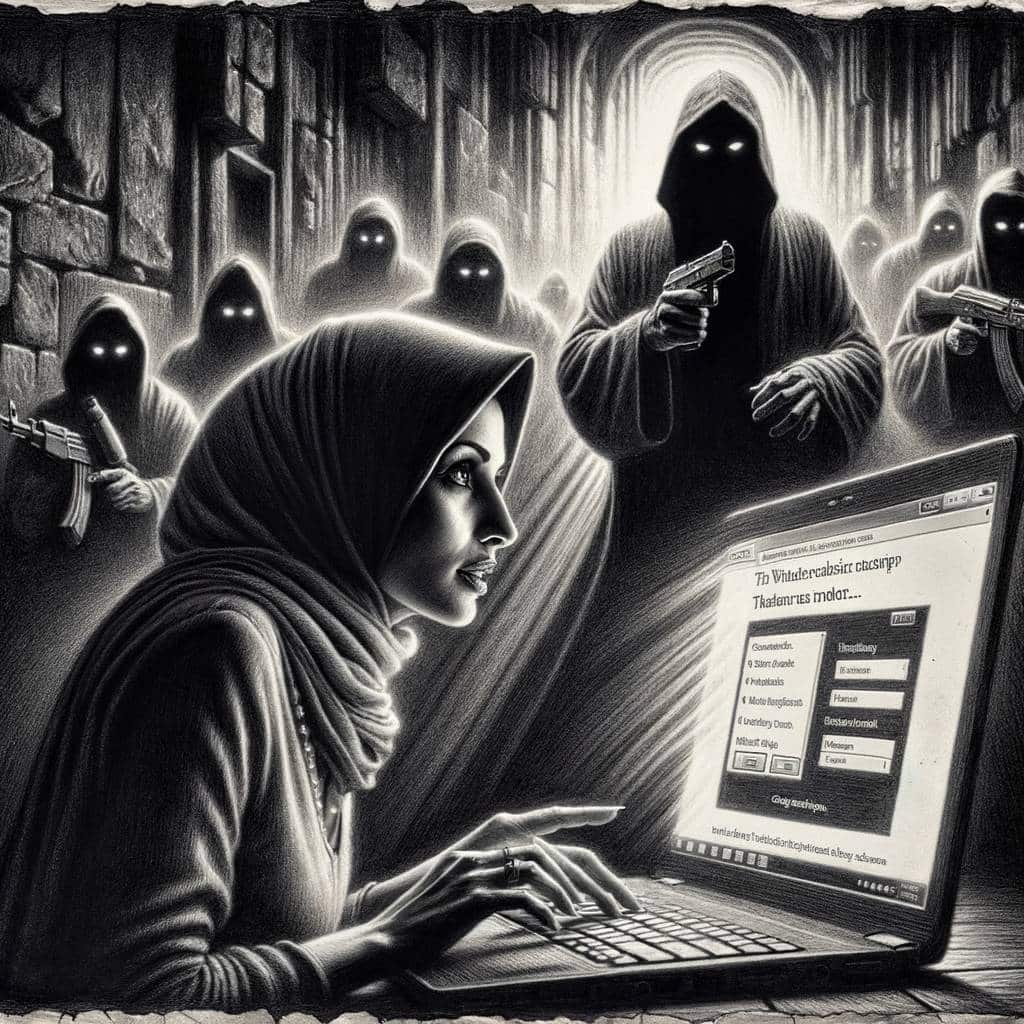Okay, deep breath, let's get this over with. In the grand act of digital self-sabotage, we've littered this site with cookies. Yep, we did that. Why? So your highness can have a 'premium' experience or whatever. These traitorous cookies hide in your browser, eagerly waiting to welcome you back like a guilty dog that's just chewed your favorite shoe. And, if that's not enough, they also tattle on which parts of our sad little corner of the web you obsess over. Feels dirty, doesn't it?
Beware Fake Downloads: Ransomware Scam Targets Windows Admins with Phony Putty and WinSCP Ads
In a cunning twist, cybercriminals are luring Windows system administrators with fake Google ads for Putty and WinSCP downloads. These ads, dripping with deception, lead to malicious sites where unsuspecting clicks download a booby-trapped ZIP. Inside, a sinister script lies in wait, ready to unleash…

Hot Take:
When cyber crooks go shopping, they don’t just browse—they buy ads! In a twist that would make Don Draper facepalm, system administrators looking for trusty tools like PuTTY and WinSCP are being led astray by crafty ransomware peddlers masquerading as legitimate software sites. Who knew downloading a simple SSH client could turn into a high-stakes cyber thriller?
- Ransomware operators targeted Windows systems by promoting fake sites for PuTTY and WinSCP through search engine ads.
- The fake websites used typosquatting domain names to appear credible and trick professionals into downloading malicious files.
- Downloads from these sites could either be benign or malicious, based on the referral source, with malicious downloads containing a booby-trapped DLL file.
- The malicious DLL file deployed the Sliver toolkit and Cobalt Strike beacons, opening the door for further exploitation, data theft, and ransomware deployment.
- The campaign mimicked past operations by notorious ransomware groups, exploiting trusted ad platforms to distribute malware effectively.
Need to know more?
The Trojan Horse of Software Downloads
Imagine you’re just trying to do your job, and suddenly, you’re the starring character in a hacker’s plot. That’s the reality for system administrators who thought they were simply updating their software tools. Instead of getting a productivity boost, they received a nasty surprise—malicious downloads masquerading as PuTTY and WinSCP. The methodology? Good old-fashioned bait-and-switch via typosquatting, where a single misplaced letter leads to a world of cyber pain.
A Digital Wolf in Sheep’s Clothing
These aren’t your average malicious downloads; they’re a wolf in sheep’s clothing. The downloaded ZIP files seem innocent enough, containing what appears to be a legitimate Python executable. However, lurking within is a malicious DLL poised to unleash havoc. This sneaky switcheroo uses DLL sideloading to execute harmful actions, proving that sometimes, the biggest threats come in familiar packages.
The Puppet Masters of Malware
Once the malicious DLL is activated, the attackers pull the strings on their newly compromised puppet. The Sliver toolkit rolls out the red carpet for further malware delivery, including the infamous Cobalt Strike, turning a simple workstation into a goldmine for data exfiltration and network compromise. It’s like inviting someone to fix your windows but ending up with every lock in your house picked.
An Ad to Add to Your Blocklist
The audacity of ransomware gangs has reached new heights—they’re now using the very tools meant to connect us with reliable software against us. By hijacking search engine ads, these cyber swindlers create a façade of legitimacy that can fool even the savviest users. It’s a stark reminder that in the digital age, not all that glitters is gold, and sometimes, it’s just glitter-covered malware.
When Google Ads Go Rogue
This incident sheds light on a larger issue—the exploitation of trusted ad platforms by threat actors. With the power to reach millions, these platforms can just as easily be used to spread harm as they can to promote legitimate businesses. It’s a cyber double-edged sword that requires more stringent safeguards and a keen eye from all digital denizens. After all, the next click could be the one that invites cyber thieves through your digital front door.
In the wild web, where downloading software can be as risky as a late-night stroll through a digital back alley, it’s essential to remain vigilant and question every link, even those that seem benign. Remember, in the cyber realm, it’s better to be paranoid than sorry!

